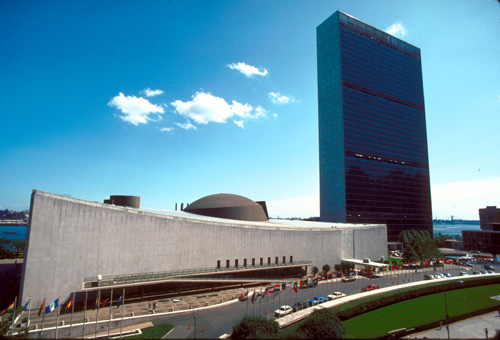From Associated Press:
A U.N. human rights committee denounced the Vatican on Wednesday for adopting policies that allowed priests to rape and molest tens of thousands of children over decades, and urged it to open its files on the pedophiles and the churchmen who concealed their crimes.
In a devastating report, the U.N. committee also severely criticized the Holy See for its attitudes toward homosexuality, contraception and abortion and said it should review its policies to ensure children’s rights and their access to health care are guaranteed.
On sex abuse, “the committee is gravely concerned that the Holy See has not acknowledged the extent of the crimes committed, has not taken the necessary measures to address cases of child sexual abuse and to protect children, and has adopted policies and practices which have led to the continuation of the abuse by, and the impunity of, the perpetrators,” the report said.
It called for the sex abuse commission that Pope Francis announced in December to conduct an independent investigation of all cases of priestly abuse and the way the Catholic hierarchy has responded over time, and urged the Holy See establish clear rules for the mandatory reporting of abuse to police.
The committee issued its recommendations after subjecting the Holy See to a daylong interrogation last month on its implementation of the U.N. Convention on the Rights of the Child, the main international treaty ensuring children’s rights. During that session, the committee’s independent experts grilled the Holy See on its protection of children, working from reports prepared by victims groups and human rights organizations.
The committee’s recommendations are non-binding and there is no enforcement mechanism. Rather, the U.N. asked the Vatican to implement the recommendations and report back by 2017. The Vatican was 14 years late submitting its most recent report.
Read more. No response, as yet, from the Vatican.
John Allen, meantime, offers this analysis:
Two quick observations on the report.
One, it follows a Jan. 16 hearing in Geneva in which Italian Archbishop Silvano Tomasi and Auxiliary Bishop Charles Scicluna of Malta appeared before the Committee on the Rights of the Child on behalf of the Vatican.
Tomasi vowed that the Catholic church today wants to be “an example of best practice” in the fight against child abuse, while Scicluna insisted that Catholicism now recognizes a “non-negotiable principle” of paramount concern for the well-being of children in its approach to wayward clergy.
In general, the back-and-forth that day suggested that the child protection experts who make up the UN panel felt that the Vatican, however belatedly, is moving in the right direction.
Sara De Jesus Oviedo Fierro of Spain, for instance, said at day’s end that the committee now has “great expectations that new steps will be taken, that dialogue with civil society will happen, [that] this will become a reality. This will attest to this new era, this new dawn for the Holy See.”
The written report doesn’t contain much reference to Tomasi and Scicluna’s testimony, and its tone is unsparingly critical – suggesting either that at least portions of it were actually drafted before the hearing took place, or that, upon reflection, the experts were less persuaded the Vatican has turned a corner than they seemed two weeks ago.
Second, the report seems destined to be read with skepticism in some Catholic circles because it also wades into the culture wars. At different points, the UN panel suggests that the Vatican modify, or even abandon, Catholic teaching on issues such as abortion, gay marriage and contraception.
Read more:
http://johnlallenjr.wordpress.com/2014/02/05/thoughts-on-un-report-blasting-vatican/
UPDATE: The Holy See has responded with this statement:
According to the proper procedures forseen for the parties to the Convention, the Holy See takes note of the Concluding Observations on its Reports, which will be submitted to a thorough study and examination, in full respect of the Convention in the different areas presented by the Committee according to international law and practice, as well as taking into consideration the public interactive debate with the Committee, held on 16 January 2014.
The Holy See does, however, regret to see in some points of the Concluding Observations an attempt to interfere with Catholic Church teaching on the dignity of human person and in the exercise of religious freedom. The Holy See reiterates its commitment to defending and protecting the rights of the child, in line with the principles promoted by the Convention on the Rights of the Child and according to the moral and religious values offered by Catholic doctrine.












